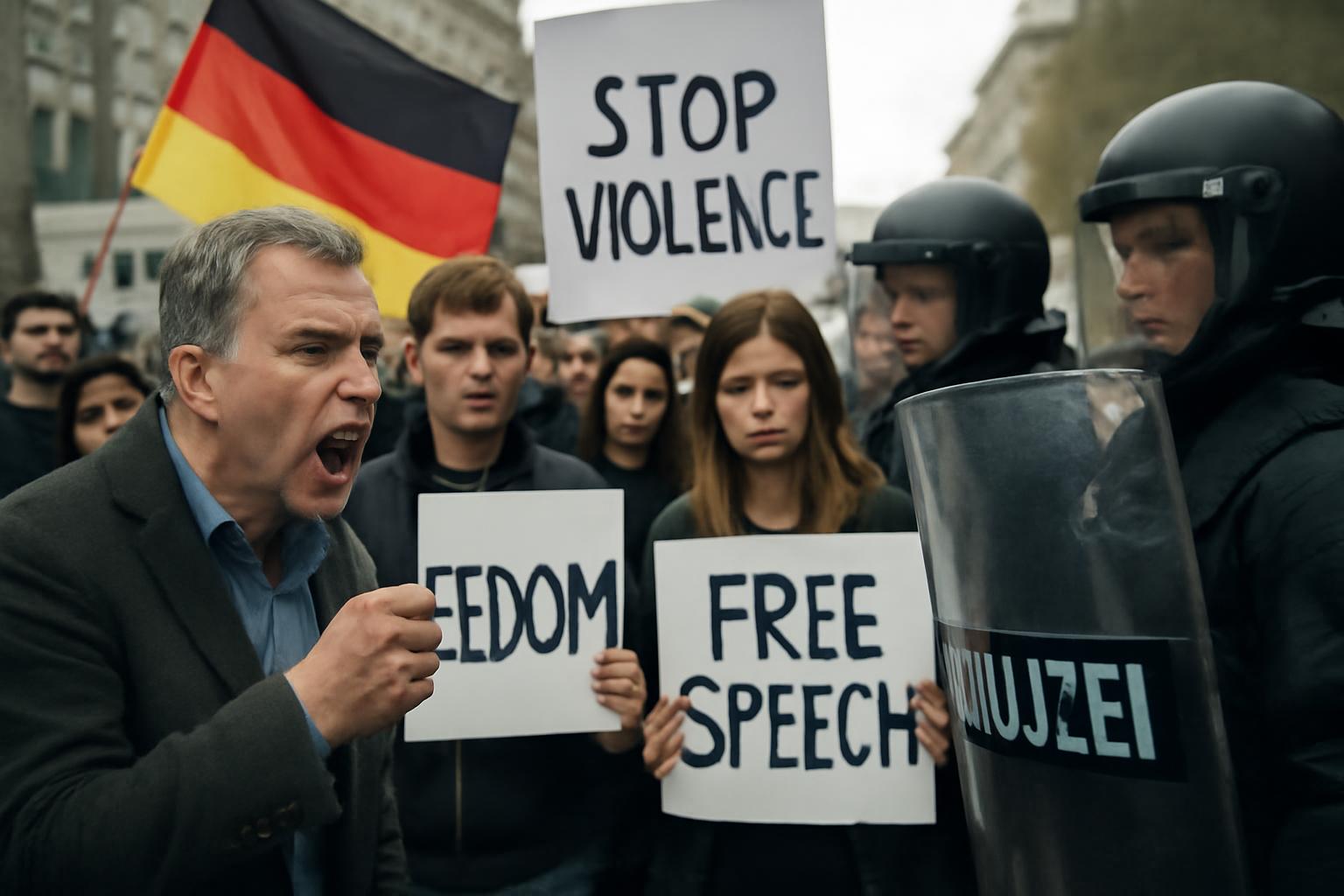Two episodes in Germany lay bare how quickly the atmosphere of public life can harden when passions, grievances, and identities are permitted to override the ordinary rules by which a free people resolves conflicts. In one city a German politician, present at a demonstration for a particular cause, was assaulted and threatened as she left the scene; the authorities moved to restrain suspects and the public debate sharpened around the safety of those who speak for or against various banners and flags. In another, a clash near a protest encampment drew paint, threats, and renewed accusations of antisemitism, with calls—from city leadership and national Jewish representatives—for consequences and even for dissolving the camp. Across both episodes, the central concern voiced by Jewish leaders is not only the violence of the moment but the sense that a broader, more ominous mood is spreading—one that tests the very foundation of liberal coexistence: the willingness of citizens to respect the rights of others while they pursue their own ends.
From the vantage of a tradition that prizes liberty as the slow sediment of many voluntary associations, this is a moment of stark warning. If a society permits violence or the threat of violence to decide who may speak, who may protest, and who must be protected, it ceases to be a free society and begins to resemble a field of force organized around fear. The rule of law must be steadfast—not only in punishing wrongdoers but in preserving the conditions under which disagreement can occur without turning into coercion or contempt. The protection of minorities and the protection of dissenting voices are not two sides of a political bargain; they are the same requirement of a society that wishes to remain open to truth and tested by argument rather than by intimidation.
Yet there is a deeper risk that surfaces when public life becomes saturated with a mood that brands groups as enemies and treats particular identities as political weapons. The instinct to “stand up” for a hostages’ cause is powerful, but it cannot justify the erasure of civil norms, nor can it authorize a retreat from defending the universal rights of all citizens, including those who may be on the opposite side of the banner. The moment a camp or a demonstrative stance calls for suspicion of entire communities, or for the dissolution of a forum in which ideas may collide, the social glue weakens. The spontaneous order of a liberal society—where many small, imperfect decisions by many people collectively produce a decent, stable order—requires room for disagreement without becoming a prelude to coercion.
What is demanded here is not a retreat into silence or suffering, but a reaffirmation of institutions that keep a society together when passions run high: a robust, impartial application of the law to all, a police force and judiciary that protect citizens without bias, and a public culture that treats dissent as the testing ground of truth rather than the exception to be crushed. It is the test of liberal civilization to insist that solidarity with hostages, with victims of violence, and with the rule of law remains intact even as we argue about policy, strategy, or moral outrage. The only credible way to preserve the liberty to debate the hardest questions—without surrendering to fear or to the coercive force of the mob—is to strengthen the very channels through which disagreements are resolved: respect for legal order, protection of minorities, and an unyielding commitment to open, peaceful, and lawful public discourse.
In the end, the challenge is not new, nor is the principle: liberty endures only if those in authority accept limits, those who protest accept responsibility, and those who fear the worst refuse to surrender to a mood that dissolves the very norms that distinguish a free society from a mere battleground of factions. To defend the hostages, to defend the right to speak, to defend the right to gather and to protest—these are not contradiction but the core duties of a polity that aspires to remain free.
